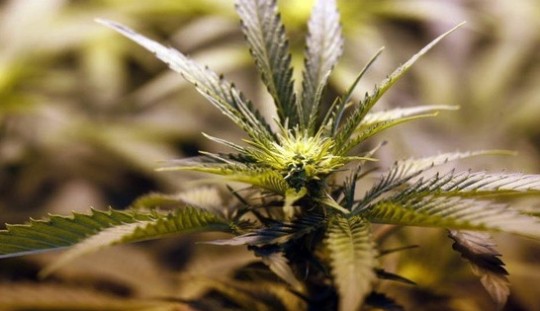Report Details Growth Of Medical Marijuana In Florida
December 31, 2018
Despite a bumpy rollout that has drawn lawsuits and criticism from legislators, a new report shows the number of Floridians using medical marijuana continues to grow.
In the first nine months of 2018, more than 136,000 patients across the state received certifications from 1,070 physicians to receive medical marijuana.
In all, those patients received 174,254 certifications — some could have received multiple certifications — for a host of medical conditions that qualify them to use marijuana. That included 41,143 certifications, or nearly 24 percent of the overall total, for post-traumatic stress disorder.
The report, issued by the Physician Certification Pattern Review Panel, also shows that physicians in Hillsborough, Pinellas and Palm Beach counties accounted for more than 30 percent of the certifications between January and Sept. 30.
The average medical-marijuana dose ordered was 372 milligrams per day, according to the data. But in Highlands County, where 470 patients were certified to receive the drugs, the average dose was 3,956 milligrams.
And in Nassau County, where two patients were reported as being certified, the average dose ordered was 17 milligrams.
While the report provides insight into how Florida physicians are responding to Florida’s burgeoning medical-marijuana market, panel co-chair Sandra Schwemmer, an osteopathic physician in Tavernier, said the information needs to be further analyzed before drawing conclusions.
Moreover, members of the panel agreed that the report doesn’t provide a full picture of Florida’s market because it doesn’t capture information from dispensaries. They have asked the Legislature to authorize the collection of the data.
Thirty-one states allow patients to use medical marijuana, including nine states that also have approved marijuana for recreational purposes.
Florida lawmakers first authorized the limited use of non-euphoric, low-THC marijuana in 2014, but Gov. Rick Scott’s administration drew criticism and legal challenges for the way it implemented the law. Voters in 2016 overwhelmingly approved a constitutional amendment that broadly legalized medical marijuana.
The following year, lawmakers passed legislation to implement the 2016 constitutional amendment, though that law also faces legal challenges.
The law required Florida’s two medical boards to form a joint committee that examines and analyzes the ordering patterns for physicians who certify patients. The panel is required to annually submit a report to the governor and legislative leaders. The new report is the first time such a document has been produced and submitted to the Legislature.
The report must include data by individual physician and information in the aggregate by county and statewide.
Data is taken from two sources: the state’s physician licensure database program and the statewide medical-marijuana use registry, which houses a variety of information about issues such as physician certifications, qualifying medical conditions and average maximum daily doses ordered.
Florida patients who suffer from a variety of ailments can receive medical marijuana. Specific diseases such as cancer, Parkinson’s disease, Crohn’s disease and glaucoma qualify patients. Also, patients who require pain management or suffer from similar conditions to the specific ones listed in the law can qualify if certified by physicians.
While medical-marijuana advocates have long touted the benefits of the substance for cancer patients, the data indicate that less than 10 percent of all medical-marijuana certifications, or 17,133, were for cancer patients.
Broward County led the state in the number of certifications for post-traumatic stress disorder, with 4,597. PTSD accounted for 35 percent of all certifications for medical marijuana in the county, according to the data.
Steven Rosenberg, a West Palm Beach physician who chairs the certifications review panel, said the PTSD certifications caught his attention and that he wanted to make sure nothing was afoul.
“If there are people who are taking advantage of the law by using a broad condition, I have some concern about that,” he said.
by Christine Sexton, The News Service of Florida
Comments
5 Responses to “Report Details Growth Of Medical Marijuana In Florida”




Growth is just fine, with kick posterior quality.
@Henry W Coe:
Amen
Biggest block in legalizing is how do the sellers process their money from sales?
Some in Colorado and other states have resorted to literally hiding huge sums of cash in Secret Safe Places because under current US Law the possession and sale of pot is ILLEGAL.
Banks operating under Federal Law cannot knowingly process or hold funds from pot sales.
Once Congress figures out how to collect taxes and charge for processing sales then there may be some forward movement.
It is rediculous and unkind to withhold the medical pot from persons needing the help.
@Henry W Coe:
You are absolutely right!
Florida Population estimates, July 1, 2018, (V2018) 21,299,325
Without the historical statistics listed for other drugs used to treat these various conditions, chronic pain, ptsd, cancer etc,,. just listing the numbers for medical marijuana comes across as being very bias rather than scientific.
That being said, all of these patients have a right to privacy and their health care choices are between themselves and their doctor. I think Florida is opening itself up to to being sued, a lot.
We would be better off legalizing for personal use than to waste a bunch of money going on witch hunts sponsored by big pharma.